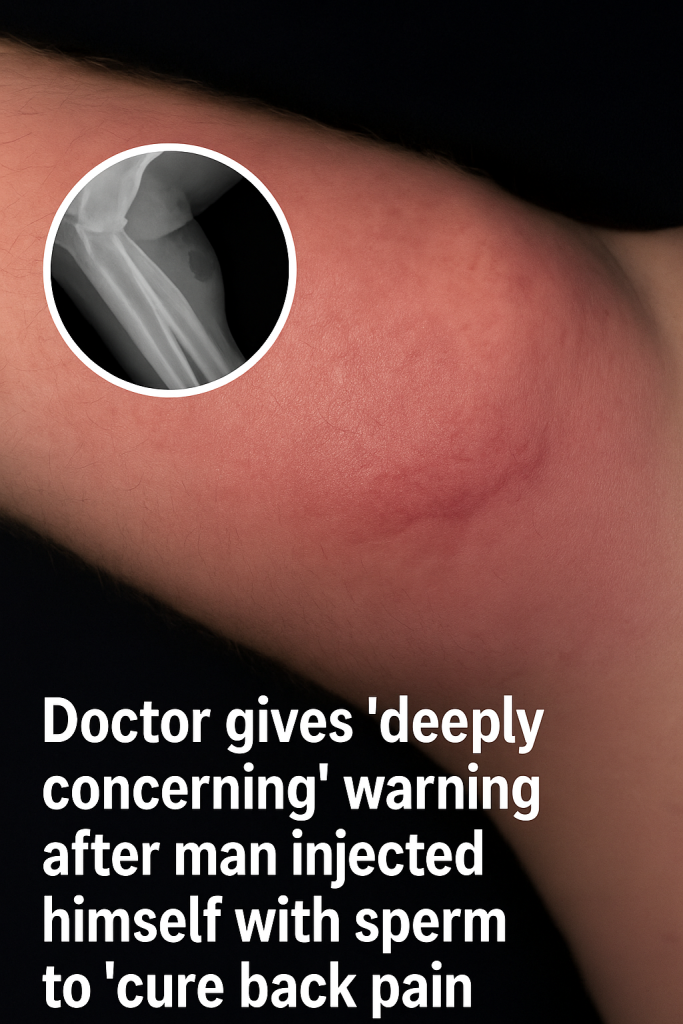A shocking new case has emerged from a hospital where a man was admitted after self-injecting sperm in a desperate attempt to relieve chronic back pain. Medical professionals have described the situation as “deeply concerning,” warning the public about the dangers of unproven and hazardous home remedies.
The 30-year-old patient arrived at the emergency department suffering from severe infections and complications linked directly to injecting bodily fluids into his tissue. According to attending physicians, the man believed that injecting sperm could somehow alleviate his persistent lower back pain, a misconception that landed him in critical condition.
Why would someone take such a risk? The origin of this unusual self-treatment reportedly stems from misinformation circulated on social media platforms, where unscientific claims about alternative cures often go viral. Desperate for relief and mistrustful of conventional medicine, the man turned to an unorthodox method without medical guidance or understanding of the potential consequences.
Medics have explained that injecting sperm directly into the body outside the reproductive system poses serious health risks. “It is a blatant misuse of biological material that can cause severe infections, abscesses, allergic reactions, and even systemic sepsis,” a doctor involved in the case noted. In this patient’s case, the improperly sterilized injection led to a severe localized infection that required immediate hospitalization and aggressive antibiotic treatment.
Back pain is one of the most common medical complaints worldwide, affecting millions. However, experts stress that proven treatments—ranging from physical therapy, medication, to interventional procedures—are the safest routes. Attempting to self-administer substances, especially those with no established therapeutic use, is strongly discouraged.
What are doctors saying now? They are urging the public to critically evaluate health claims encountered online and to seek professional advice before attempting any treatments. This case serves as a stark reminder of the dangers of misinformation and the potential consequences of experimental self-treatment.
Beyond the physical health risks, the case highlights the broader psychological and societal impact of the proliferation of unverified medical claims online. Experts recommend sourcing medical information from credible healthcare professionals and discourage the use of social media as a primary source for health advice.
Interestingly, this incident has sparked widespread conversation on social media itself, with many expressing shock and disbelief at the lengths some individuals may go in search of relief. The viral nature of the story has served both as a cautionary tale and a prompt for healthcare professionals to engage more actively in debunking myths with science-based facts.
Would you ever consider such an approach? Healthcare providers strongly advise against it and emphasize the importance of proper diagnosis and treatment plans tailored to individual patient needs. If you or someone you know is struggling with chronic pain, experts recommend consulting a qualified healthcare provider to explore safe and effective options.
In the aftermath of this incident, hospital staff are monitoring the patient closely as he recovers, hoping his experience might discourage others from resorting to dangerously misguided “remedies.”



